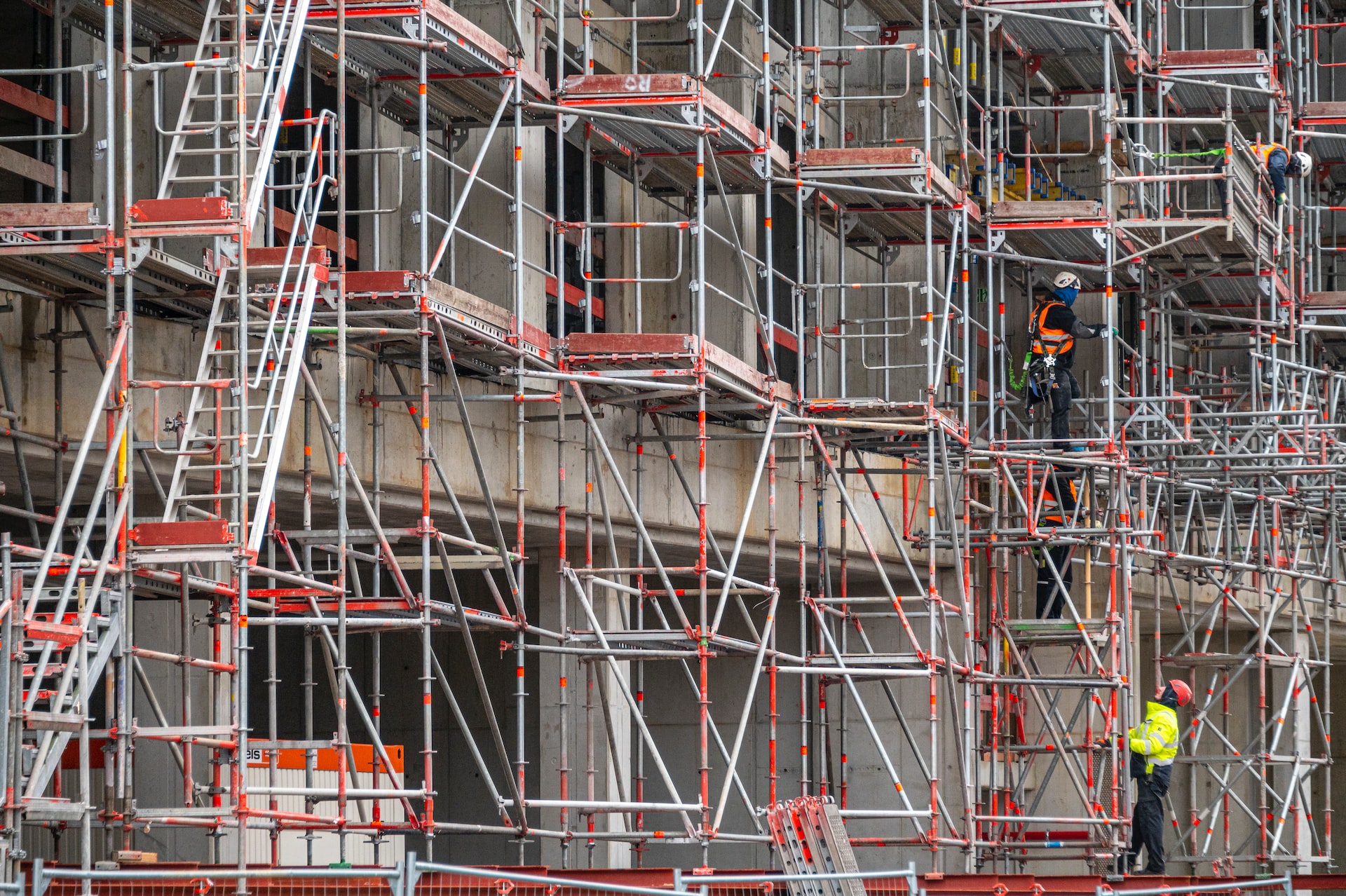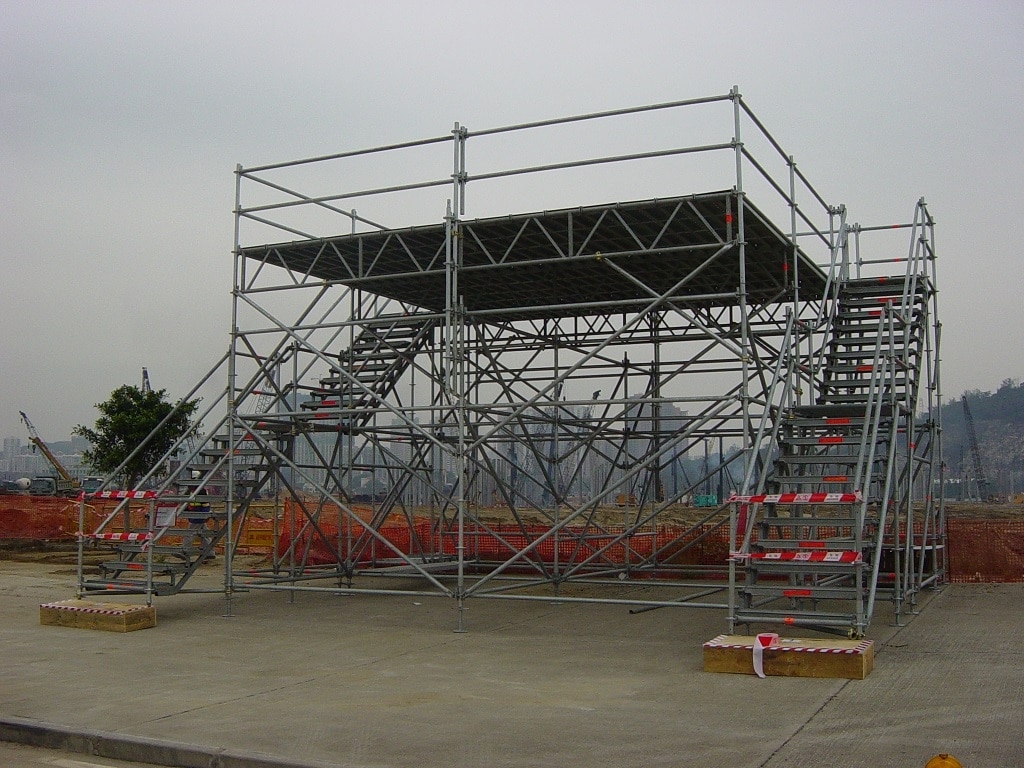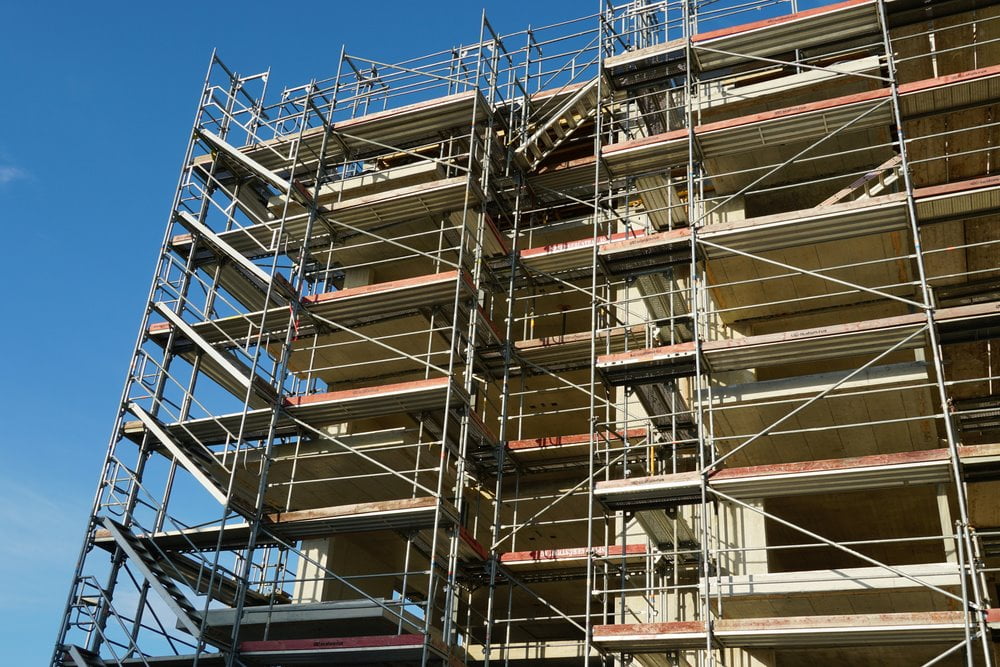Discover Leading Scaffolding Near Me for Your Home or Business Needs
Discover Leading Scaffolding Near Me for Your Home or Business Needs
Blog Article
Checking Out the Different Sorts Of Scaffolding Made Use Of in Construction Projects
The building and construction industry counts heavily on numerous types of scaffolding to meet details project needs, each offering unique benefits and applications. Typical framework scaffolding gives a durable structure for basic jobs, while suspended scaffolding is essential for job on high-rise structures.

Standard Framework Scaffolding
Conventional structure scaffolding is just one of one of the most extensively used techniques in the building market because of its toughness and adaptability. This system is composed of upright and horizontal structures that are constructed to develop a steady platform for workers and materials. The primary parts consist of upright messages, horizontal journals, and diagonal braces, which together give a strong structure that can sustain substantial lots.
Among the crucial advantages of traditional structure scaffolding is its versatility to different building and construction projects, varying from residential structures to large commercial structures. The modular design enables very easy setting up and disassembly, making it effective for both temporary and long-term jobs. Additionally, the system can be personalized in elevation and width, suiting different structure designs and website problems.
Safety is extremely important in scaffolding applications, and standard frame systems are furnished with guardrails and toe boards to stop drops and ensure employee defense. Moreover, regular assessments and adherence to safety guidelines are important in maintaining the honesty of the scaffold. In general, standard structure scaffolding continues to be a fundamental option in the building and construction industry, offering a trusted platform for labor and boosting overall task efficiency

Suspended Scaffolding
Put on hold scaffolding provides a distinct remedy for building and construction tasks that call for accessibility to raised surfaces, specifically in circumstances where typical framework scaffolding may be unwise. This sort of scaffolding is usually suspended from the roofing system or upper degrees of a structure, making use of a system of sheaves, ropes, and platforms to create a functioning room that can be gotten used to different heights.
One of the primary advantages of put on hold scaffolding is its adaptability. It can be quickly rearranged or reduced to accommodate adjustments in building demands, making it optimal for tasks such as home window installation, frontage job, and maintenance on high-rise structures. Additionally, the very little footprint of suspended scaffolding permits for better use ground room in urban settings, where space is usually restricted.
Safety and security is an important factor to consider in the usage of suspended scaffolding. Proper rigging and securing systems must be used to make certain stability and prevent crashes. Operators should likewise be learnt the safe usage of this tools. On the whole, put on hold scaffolding provides a reliable and efficient service for accessing hard-to-reach areas in different construction situations, improving both performance and safety and security on site.
System Scaffolding
System scaffolding, commonly considered as a modern remedy in the scaffolding market, contains pre-engineered elements that can be rapidly set up and adapted scaffolding numeracy in the middle years for different building projects. Scaffolding. This kind of scaffolding is characterized by its modular layout, which permits adaptability and effectiveness on task sites, suiting architectural needs and various heights
Typically made from high-strength steel or light weight aluminum, system scaffolding provides enhanced resilience and stability. The components consist of vertical posts, horizontal journals, and hop over to these guys diagonal dental braces, which interconnect securely, making certain a durable framework. The layout commonly integrates standardized installations, simplifying setting up and disassembly processes, thereby lowering labor time and expenses.

Rolling Scaffolding
Rolling scaffolding is a flexible option to conventional fixed scaffolding, developed for wheelchair and simplicity of usage on construction sites. This kind of scaffolding includes a platform sustained by structures with wheels, permitting workers to quickly transfer it as required. The flexibility feature dramatically boosts performance, as it decreases downtime connected with constructing and dismantling fixed scaffolding.
Usually built from lightweight products such as aluminum or steel, rolling scaffolding offers a tough yet mobile option for projects requiring constant repositioning - Scaffolding. It is especially helpful in tasks such as paint, drywall setup, and electrical job, where accessibility to various heights and areas is needed
Security is critical in rolling scaffolding design, with attributes such as securing wheels to avoid unexpected movement when being important source used, and guardrails to safeguard workers from drops. Additionally, many versions are adjustable in elevation, accommodating numerous project demands.
Cantilever Scaffolding

The design of cantilever scaffolding normally includes making use of arms or braces secured to a building or structure, enabling the system to expand outward securely. Safety and security is extremely important; therefore, these scaffolds should be engineered to stand up to different tons and environmental problems. Routine evaluation and maintenance are necessary to ensure architectural stability and worker safety.
Cantilever scaffolding is preferred for its convenience and reliable use of space, making it a popular selection in metropolitan environments where room restrictions prevail. It facilitates less complicated access to high altitudes, eventually contributing to the total efficiency of building projects. As with all scaffolding kinds, appropriate training and adherence to safety and security requirements are vital for employees using cantilever scaffolding.
Verdict
Traditional frame scaffolding offers stability, while suspended scaffolding provides adaptability for raised jobs. System scaffolding promotes fast setting up, and rolling scaffolding enhances movement for varying work settings.
Conventional frame scaffolding offers a durable foundation for general jobs, while put on hold scaffolding is essential for job on skyscraper structures.Moving scaffolding is a functional option to standard set scaffolding, created for movement and ease of use on building sites. As with all scaffolding kinds, correct training and adherence to safety and security standards are vital for workers utilizing cantilever scaffolding.
Traditional structure scaffolding gives stability, while suspended scaffolding supplies convenience for raised tasks. System scaffolding facilitates fast assembly, and rolling scaffolding enhances wheelchair for varying work settings.
Report this page